-
Examining Wills in Texas [Infographic]
If you’re like many people, chances are you don’t want to think about your own death. However, even if you are healthy now, accidents can happen and circumstances can change. That’s why it is a good idea to draft a living will in The Woodlands . A will is used after you pass away to distribute your property to family members, friends, organizations, or anyone else you so choose. If you do not have a will, Texas law dictates that your property will go to close relatives first. The property of a person without relatives through blood or marriage may be seized by the state. You can appoint an executor of a will, or a person who will make sure that it is carried out in the way you want. Take a look at this infographic to learn more about wills in Texas, including what you need to make a handwritten will legal. Please share with your friends and family.

-
What Is a Living Will?
If you’ve consulted a probate attorney in The Woodlands, you’re probably already familiar with the concept of using a last will and testament to designate beneficiaries for assets and guardians for minor children. “Living wills” are completely different. A living will, also known as an advance directive, is a document that your probate lawyer can draft on your behalf. A living will goes into effect during your lifetime, rather than after your passing.
When your probate lawyer creates a living will, he or she will convey to medical or healthcare providers your healthcare preferences. This allows your healthcare providers and family members to identify the care you want to receive in the event that you become incapacitated and cannot communicate these wishes. For instance, you might decide to express a desire for palliative care, but that you wish to avoid extraordinary measures such as cardiopulmonary resuscitation (CPR). Should your preferences change, you can revoke the living will at any time and create a new one if desired. Finally, never forget, an advanced directive does not override your stated wishes if you are awake and competent–it only affects decisionmaking when you are unable to make your own decision following a medical emergency.

-
Should You Change Your Will After Divorce?
Divorce lawyers serving Spring, TX, regularly advise their clients to change their wills after a divorce. While in this process, you should also make any necessary adjustments to your living will and power of attorney.
Divorce lawyers caution all clients amend their wills and the beneficiary designations for life insurance, 401Ks, IRAs, and any other documents where a former spouse is named as beneficiary. After you file divorce papers, you may feel understandably emotional. While making changes to wills and trusts may be the last thing on your mind, you need to consult with a probate lawyer or divorce lawyer as soon as possible. Effectively, even though a divorce “disinherits” your spouse, failure to be vigilant may result in your own children and other beneficiaries becoming effectively disinherited. Ideally, you should review your will, living will, and trusts before filing for divorce, and, if not, most certainly afterwards. That way, your former spouse will not be able to unfairly pursue your individual resources.

-
Instances When Probate Litigation May Be Required
After a death, matters pertaining to the decedent’s debts and assets are resolved through the probate process. In many cases, probate is straightforward and is easily settled. However, sometimes probate litigation may be necessary to resolve claims. It’s always a good idea to retain the services of a lawyer when dealing with probate court in Conroe, TX. A probate lawyer can help you in the event that probate litigation is needed, such as if you believe it necessary to authenticate a will. Your lawyer might contest a will if you believe that the document was not drafted properly or the signature may not be valid.
It’s not uncommon for the terms of a decedent’s will to become a source of disagreement among the heirs. You’ll need the services of a skilled probate attorney in the event that you need to dispute the will or if another heir has disputed the will. Another reason why probate litigation may be necessary is if a loved one dies intestate (without a last will and testament). In these cases, an attorney can facilitate the process of determining the rightful heirs.
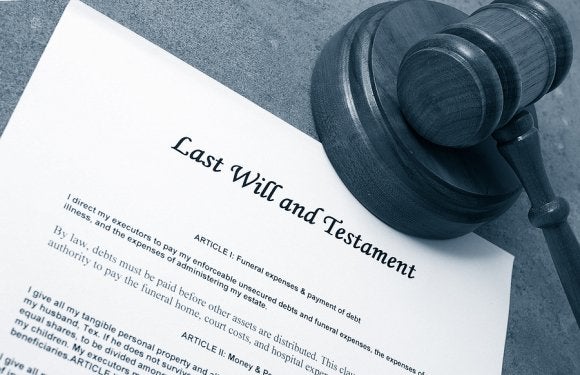
-
Probate in Texas: Understanding the Process
Probate is the process of recognizing a death and validating a will for the purpose of administering the decedent’s estate. A decedent’s estate will go through probate regardless of whether an individual had a legal will or died intestate (without a will). After a loved one passes, hiring a probate lawyer can be immensely helpful. A probate attorney in The Woodlands can ensure that the requirements of the Texas Probate Code are met and that probate proceeds as efficiently as possible. The lawyer can also help the family understand what to expect from each step of the probate process.
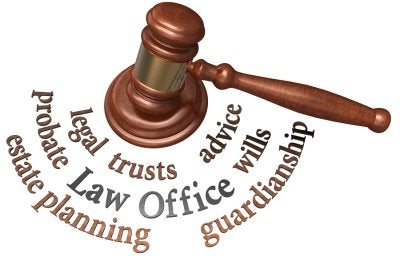
Waiting Period
The first step your lawyer will take in most probate cases is to file the application and the original of the will at the courthouse. Then, there is a mandatory waiting period, which begins once the application is filed.Probate Hearing
After the waiting period, the court may schedule a probate hearing or your attorney may schedule it. Probate hearings are usually held in the courtroom, however, sometimes they take place in the judge’s office. At the probate hearing, the judge will recognize the death of the decedent, determine that the court has jurisdiction, determine that the executor is qualified, and recognize the validity of the will . The lawyer states certain facts about the decedent to a witness, who is then required to confirm the truth of the facts. Thereafter, the judge may issue an order that admits the will to probate.Estate Administration
After the probate hearing, the executor begins administering the estate. He or she must sign an Oath, which is a legal document verifying the executor’s intent to fulfill all necessary duties required by law and the will. Next, the executor usually orders Letters Testamentary. These “Letters” provide the executor with the authority necessary to administer the estate, such as the power to close bank accounts and sell property. The executor must also publicize information about the estate to potential creditors, provide each beneficiary with a copy of the will, and file various documents with the court. These documents typically include an inventory of probate assets, the decedent’s final income tax return, and a document that confirms the publication of notice to the creditors. Finally, the executor will resolve debts and distribute assets. -
A Look at the Documents You Need for Estate Planning
Estate planning involves the creation of many different documents for avoiding probate in The Woodlands , including living trusts, advanced directives, and powers of attorney. A living trust may be beneficial for managing your assets following death. However, a will may be preferable because it is both simple to create and works well with your power of attorney.
In this video, a will attorney outlines what documents you need for creating a trust and which documents you need for creating a will. As he explains, you need financial powers of attorney to allow someone to manage you assets if you become incapacitated. To obtain powers of attorney, you also need to provide your lawyer with medical directives and a HIPAA release. This allows you to list everyone you want to be able to talk to the doctors in the event you become incapacitated.
-
Why You Should Hire a Lawyer to Write Your Will
A number of people take a do-it-yourself approach to creating a will and assume they don’t need to consult with a will lawyer in The Woodlands . However, each state has very specific requirements for drafting a will, which must be followed in order for the will to be legally valid. If you do not know what these requirements are, how do you know that you’ve complied with them? Meeting with a will lawyer can help someone ensure transfer of assets, guardianship of children, and other estate decisions are handled properly.
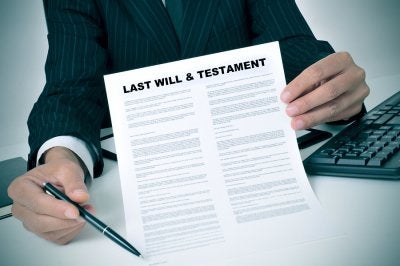
Meet state requirements
Perhaps the biggest reason to hire a professional when drafting a will is to make sure that your will meets Texas’s unique will-drafting requirements. Some lawyers even offer free consultations for the purpose of discussing wills and trusts. If you don’t meet your state’s requirements in drafting a will, then you may lose the opportunity to make decisions regarding the division of your estate and guardianship of your children. Without a proper will upon death, state statutes will dictate the division of your assets between your spouse and children. On the other hand, a will attorney can help you ensure certain assets are given to specific loved ones. Additionally, consulting with an attorney allows you to make an educated choice in determining who will be responsible for your children after your death.Lessen family disputes
Self-created wills can be easy to change and update. Unfortunately, this means that overzealous relatives can take advantage of an elderly family member and convince him or her to alter the will in a particular favor. A will lawyer makes sure that clients have the capacity to write and change their wills, which reduces the likelihood of bitter family disputes and lengthy court battles.Reduce expensive court costs
Drafting a will on your own and failing to do so properly opens your family up to painful legal battles after your death. This means that while do-it-yourself will drafting may be cheaper initially, it also could end up costing your family thousands in subsequent court fees and legal battles. Ensuring your will is drafted properly can also help ensure your family won’t be fighting over property or guardianship issues after you die. -
What Should You Do if You Need to Update Your Will?
Even if you are in good health, from time to time it’s a good idea to consult with a will attorney in The Woodlands about updating your will. Creating a will is one of the most important decisions you can make for your family, as it reduces the likelihood of disputes after you pass, as well as smoothes the transition for your loved ones. Consequently, you should have a skilled will attorney draft this important document to ensure the terms of your will are properly carried out.
In addition to the need to choose a will attorney, the will itself also need to choose an executor who ensures that its provisions are properly carried out. The executor should be a responsible person whom you can trust. As circumstances often change, accept that you may need to alter the terms of your will down the road. An experienced will lawyer can make sure your present will still reflects your wishes upon passing. Your lawyer can also make sure you avoid any misunderstandings by using proper language in your will. You believe that your do-it-yourself will is clear and concise? Remember this: You will not be there to explain it to the judge. Leaving ambiguous terms in the document could lead to disputes among your heirs or even a failure for the will to be accepted into probate. Will lawyers draft using clear language to ensure life is easier for your beneficiaries.
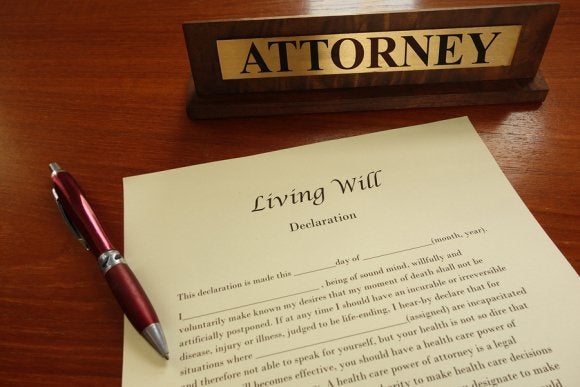
-
Breaking Down Myths About Wills
Putting together a will is one of the most important things you can do for your family members. A clear will can make your wishes known–and enforceable–in the event of your death. This reduces the likelihood of a lengthy legal struggle among your heirs. Andrew J. Bolton, Esq. , a probate law attorney in The Woodlands, can help you organize your will and ensure that your loved ones are taken care of after you’re gone. Before you start work on your will, it’s important you understand the truth behind a few persistent myths.
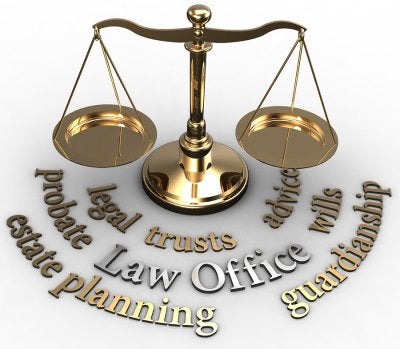
Wills take years to get settled
You’ve likely seen stories in the news about long, costly legal battles over inheritances. Though some large and complex estates may take years before they’re fully settled, this is far from the norm. Most of the time, it only takes a few months for inheritances to be distributed. The clearer the will, the more quickly the probate process will go.The probate process is costly
After a person dies, property in his or her name must go through the probate process before the property can be transferred to a beneficiary. Some individuals dread the probate process because they think court and legal fees will take up a large portion of the estate. However, court fees and lawyer’s fees often add up to less than a few thousand dollars.The state gets the money if no will is in place
Perhaps the most common misconception is that the state automatically owns the property of a person if he or she dies with no valid will in effect. In fact, there are several legal contingencies that exist for just such an event. Depending on the family configuration, the money may go to the deceased’s spouse, children, or parents. That having been said, the deceased’s assets actually do go to the state where there are no family members to be found.
RECENT POSTS
categories
- Uncategorized
- Estate Planning
- Probate
- Family Law
- Drafting a Will
- Divorce Lawyer
- Texas Family Law
- Divorce
- Real Estate
- Probate Court
- Child Custody
- Andrew J. Bolton
- Esq.
- Adoption
- Law Office of Andrew J. Bolton
- Wills
- Executor
- Infographic
- Guardianship
- Trusts
- Contested Divorce
- Child Support
- Attorney
- Living Wills
- Contested Will
- Prenuptial
- Probate Bond
- Heir Apparent
- Legacy Contact
- Living Trusts
- legal guardian
- Legal Disputes
- property rules
- Common Law
- Stocks
- Estate Tax
